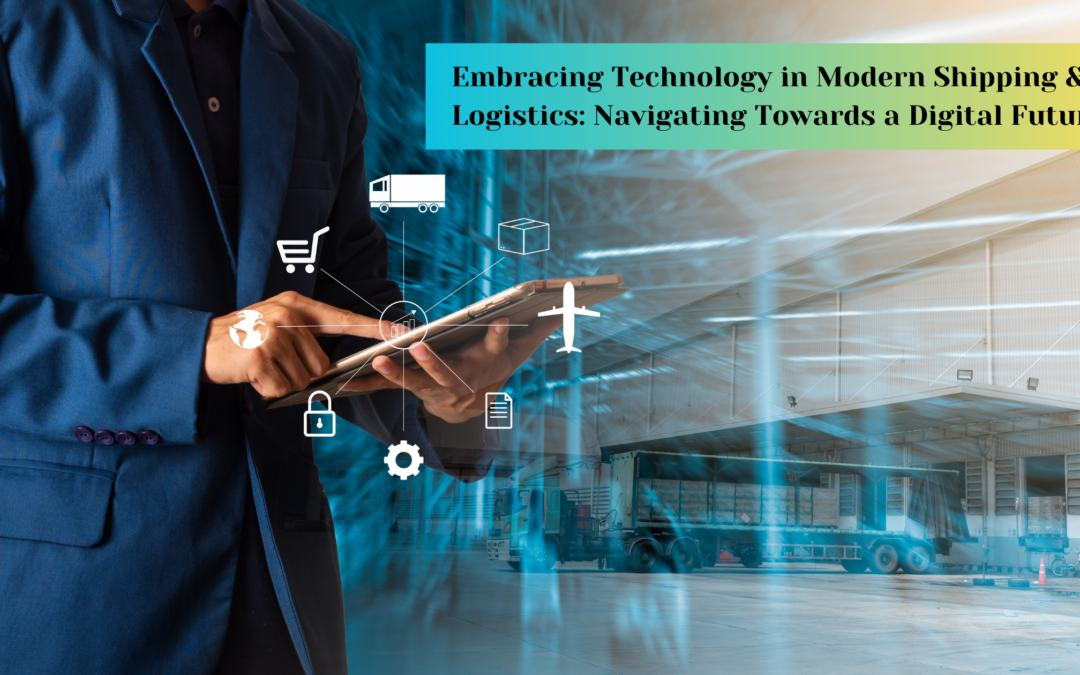Introduction
The shipping and logistics industry is undergoing a digital transformation, driven by rapid technological advancements. From automation and artificial intelligence to blockchain and the Internet of Things (IoT), technology is reshaping how goods are transported, stored, and managed. As this evolution continues, it’s crucial for aspiring professionals to acquire the skills needed to navigate this digital future. GIIL’s programs are designed to equip students with the knowledge and expertise required to thrive in the modern logistics landscape. This article explores the role of technology in transforming the logistics industry and how GIIL prepares students for success.
Transformative Technologies in Shipping & Logistics
1. Automation and Robotics
Automation and robotics are revolutionizing logistics operations. Automated systems streamline warehouse management, order fulfillment, and inventory tracking, reducing human error and increasing efficiency. Robots are now capable of handling tasks such as sorting, packing, and transporting goods within warehouses, allowing for faster and more accurate operations.
2. Artificial Intelligence (AI) and Machine Learning
AI and machine learning are transforming the logistics industry by enabling predictive analytics, demand forecasting, and route optimization. These technologies help companies make data-driven decisions, improve customer service, and reduce operational costs. For example, AI-powered chatbots provide real-time customer support, while machine learning algorithms optimize delivery routes to minimize fuel consumption and delivery times.
3. Blockchain Technology
Blockchain technology enhances transparency and security in the logistics industry. By creating a decentralized and immutable ledger of transactions, blockchain ensures that all parties involved in the supply chain have access to accurate and tamper-proof information. This technology is particularly valuable in tracking the provenance of goods, verifying authenticity, and preventing fraud.
4. Internet of Things (IoT)
The IoT connects devices and sensors throughout the logistics network, providing real-time visibility into the movement and condition of goods. IoT-enabled devices monitor temperature, humidity, and location, ensuring that perishable goods are stored and transported under optimal conditions. This technology enhances supply chain visibility, improves asset management, and reduces losses due to spoilage or theft.
Preparing for a Digital Future with GIIL
1. Cutting-Edge Curriculum
GIIL offers a cutting-edge curriculum that covers the latest advancements in logistics technology. Students gain hands-on experience with automation tools, AI applications, blockchain platforms, and IoT devices. The program emphasizes practical skills and real-world applications, ensuring that graduates are well-prepared for the demands of the modern logistics industry.
2. Industry Partnerships
GIIL maintains strong partnerships with leading companies in the shipping and logistics sector. These partnerships provide students with access to internships, industry projects, and networking opportunities. By working closely with industry experts, students gain valuable insights into current trends and challenges, enhancing their readiness for the workforce.
3. Expert Faculty
GIIL’s faculty comprises industry veterans and academic experts with extensive experience in logistics technology. They bring real-world knowledge into the classroom, offering students a blend of theoretical foundations and practical insights. Faculty members also mentor students, guiding them through their academic journey and career development.
4. State-of-the-Art Facilities
GIIL boasts state-of-the-art facilities equipped with the latest technology used in the logistics industry. From automated warehouses to AI labs, students have access to cutting-edge tools and resources. These facilities provide an immersive learning environment where students can experiment with new technologies and develop innovative solutions to industry challenges.
Conclusion
The future of shipping and logistics is digital, and technology is at the forefront of this transformation. As the industry continues to evolve, the demand for skilled professionals with expertise in automation, AI, blockchain, and IoT will only increase. GIIL’s programs are designed to equip students with the knowledge and skills needed to thrive in this digital future. By embracing technology and staying ahead of industry trends, GIIL graduates are well-positioned to lead the logistics industry into the next era of innovation.

